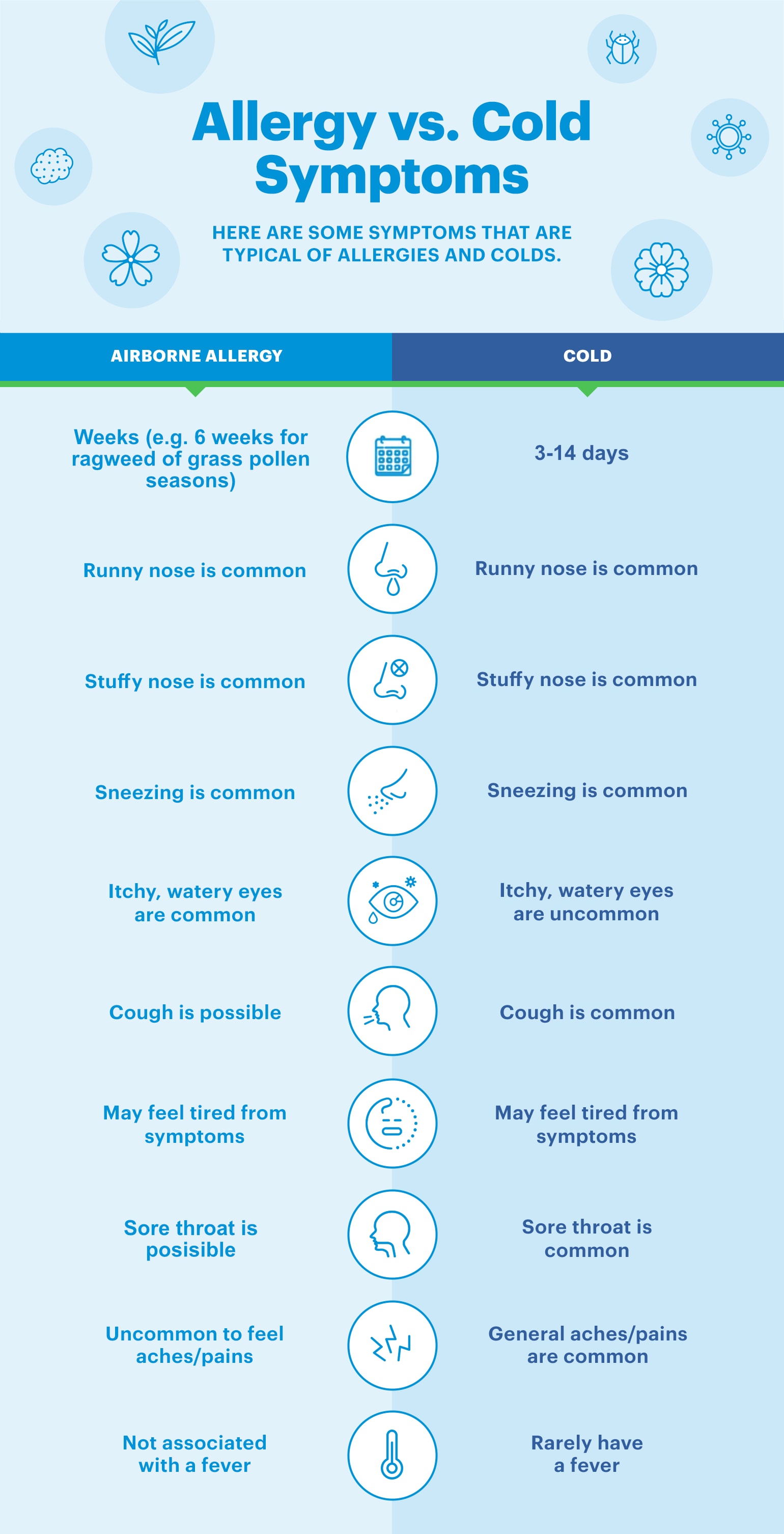What Are Allergies?
If you have allergies, your immune system mistakes a substance that is ordinarily harmless to most people as a threat and goes into defence mode. These substances, that can come from sources like pollen , pet dander, mould and dust mites are called allergens. Your allergies are not contagious.
What is a Cold?
A cold happens when a virus makes its way into your body. Your immune system responds to this foreign invader by attacking the virus. Some of the cold symptoms, like runny nose and nasal congestion, can feel a lot like allergies so it can be hard to tell the difference. A cold is contagious. You can catch it when someone with a cold sneezes, coughs or touches you.
Typical Characteristics of Allergies vs. a Cold
Learn Some of the Differences Between Allergies and a Cold
While colds and allergies can have similar symptoms, here are some questions to help you tell if you need to reach for a Claratyne® product or curl up with a bowl of chicken noodle soup and binge watch your favorite shows:
1. How quickly did your symptoms strike?
Allergy symptoms tend to hit all at once when you come into contact with an allergen . Symptoms of a cold usually appear one at a time and develop slowly over a few days.
2. How long have you had symptoms?
Colds typically run their course within 3-14 days. Allergy symptoms can last weeks or months, and will be present as long as you are exposed to the allergen. If your cold symptoms last longer than two weeks, talk to your doctor or pharmacist.
3. Do you have body aches and pains?
Colds may come with slight body aches and pains. Allergies are not usually associated with body aches and pains.
4. What time of year is it?
Colds are more common during the winter months, but could also occur any time of the year. Indoor allergies can happen year-round and outdoor seasonal allergies are more common in the spring through autumn when pollen counts are high.
Its important to always practice good hygiene with frequent, thorough hand-washing. Avoid touching your eyes, nose and mouth with unwashed hands. It’s the most common way that cold viruses get into your system.
Protect others and stay at home if you're unwell. If you're experiencing cold or flu like symptoms stay home and speak to your doctor.








